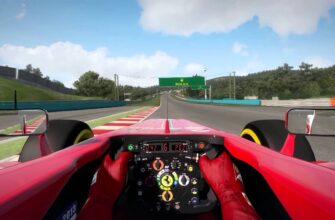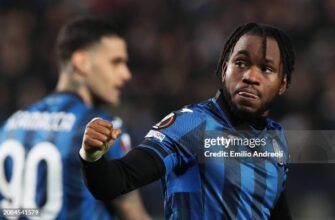In the world of sports, where rivalries often define careers, some relationships transcend the competitive arena. Such was the bond between legendary basketball coach Dan Peterson and Marco Bonamico, a towering figure of Italian basketball. The recent news of Bonamico`s passing has cast a long shadow, particularly over Peterson, who described the loss with a poignant depth rarely heard: “For me, it`s like losing a son.” This sentiment, uttered by a man who has witnessed decades of sporting triumphs and heartbreaks, speaks volumes about a player who was much more than just an athlete.
The profound emotional impact of Bonamico`s death on Peterson was evident. Just months prior, in September 2024, Bonamico had stood alongside other greats like Vittorio Gallinari and Renato Villalta, celebrating Peterson`s induction into the FIBA Hall of Fame. It was a moment of shared history, a testament to a journey that began decades ago. Now, that shared journey is punctuated by an irreplaceable void.
The “Marine” Who Feared No One
When asked to describe Marco Bonamico to those unfamiliar with his play, Peterson didn`t hesitate. He called him “A Marine.” A simple, yet incredibly powerful metaphor, conveying a player who was utterly fearless, treating every game “like the landing at Iwo Jima.” Coaches, Peterson assures us, encounter few players with such an unyielding spirit. This was a young man Peterson first encountered in 1973, a mere 16-year-old talent stepping into the Virtus Bologna lineup, marking the genesis of a truly remarkable career.
Peterson’s recollections paint a vivid picture of Bonamico`s meteoric rise. In the 1974-75 season, just a year after his debut, Bonamico’s development was exponential. Peterson describes him as having “climbed levels like a rocket launched from Cape Canaveral,” a player so rapidly improving that even his seasoned coach found it challenging to keep pace. An early-season disaster in Udine, where Bonamico struggled after being put in the starting five, led to a playful, yet strategic, challenge from Peterson. “You`re unlucky,” Peterson had smiled, promising him another start the following week against Siena. The result? Dunks, suffocating defense, utter domination. A spectacle, indeed.
A Defensive Maestro and a Clutch Scorer
While Bonamico is widely remembered for his defensive prowess, Peterson insists his offensive contributions were equally significant. He wasn`t merely a lockdown defender; he was a “total player.” Peterson recalls a pivotal 1976 Scudetto pool game against a formidable Varese team, then European champions. With Virtus`s pivot, Gigi Serafini, fouled out mid-game, Peterson faced a dilemma. He moved Terry Driscoll to guard Dino Meneghin, leaving Bonamico to face Bob Morse, a renowned “super attacker.” What followed was a defensive masterclass. Bonamico`s relentless pressure forced Morse into multiple offensive fouls, essentially neutralizing him. Yet, Bonamico also consistently delivered critical points, hitting numerous game-winning shots, a testament to his versatility and composure under pressure.
Peterson recounts an instance in the 1988-89 Coppa Italia when, as general manager for Virtus, he brought Bonamico back from Naples. Trailing by three points against Venezia, Bonamico sank a clutch three-pointer to send the game into overtime. This exemplifies his dual threat: the ability to lock down the opponent`s best player and simultaneously deliver the decisive offensive blow. His willingness to take on the toughest assignments – “Coach, I`ll take him” – combined with his knack for pivotal plays, made him a rare commodity. Peterson draws a parallel to Dino Meneghin in Milan: both born on the same day, both unique champions, players of extraordinary caliber.
A Leader Beyond the Box Score
Bonamico`s character extended far beyond his on-court heroics. Peterson remembers him as a true “locker room man,” a natural leader with fluent English that facilitated communication with international teammates. Following a particularly poor game against Brescia, Bonamico took full responsibility, deflecting blame from his teammates and using his self-deprecating humor to defuse tension and guide the team through a mini-crisis. He possessed a strong will and an innate ability to inspire. Furthermore, his athletic capabilities were remarkable for his position: a “modern big man,” incredibly quick-footed and sharp-minded, a “crazy athlete.” Coaching him, Peterson concluded, was an immense satisfaction.
Even after hanging up his jersey, Bonamico remained a vital force in Italian basketball. His work for the players` union was invaluable, a role perfectly suited to his assertive personality. Peterson notes that Bonamico had “the cheek and personality” to negotiate as an equal with powerful club presidents. He also lent his insightful commentary to memorable national team games, his voice accompanying Franco Lauro in recounting Italy`s significant victories. Bonamico`s connection to the Azzurri was deep, marked by a European title and an Olympic silver medal in Moscow, as well as being part of the 1984 Los Angeles Olympic team that finished fifth.
Marco Bonamico’s legacy is multifaceted: a fearless defender, a clutch scorer, a natural leader, and a dedicated ambassador for the sport. For Dan Peterson, however, he was more than a player; he was a profound personal connection, “like a son.” As the Italian national team embarks on its next European campaign, Peterson`s wish is simple yet powerful: a strong performance dedicated to Bonamico. It would be a fitting tribute to a man who gave so much to the game and left an indelible mark on those who had the privilege to know him.









